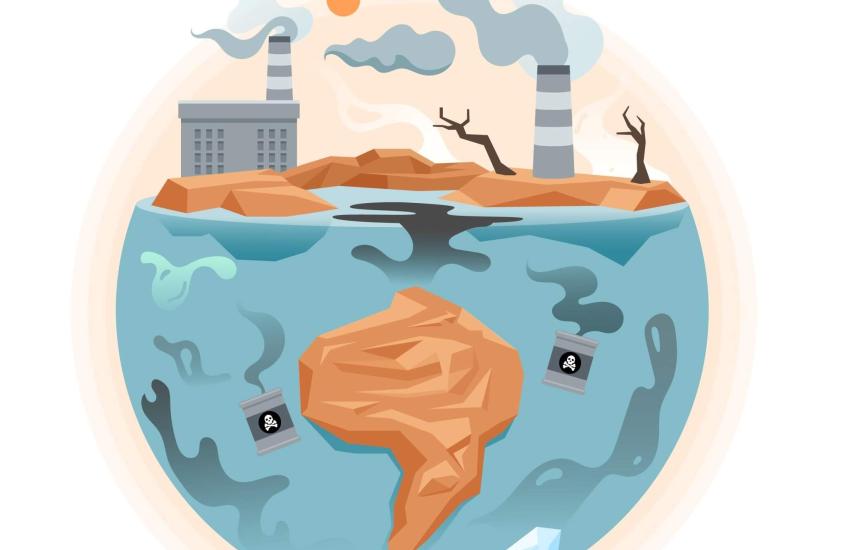Breadcrumb
-
Guidebook
-
Marine Conservation
-
Climate Change and Marine Conservation: Mitigation and Adaptation Strategies
Climate Change and Marine Conservation: Mitigation and Adaptation Strategies

Combat the significant threat of climate change to marine ecosystems and their diverse species by volunteering. Rising temperatures, ocean acidification, rising sea levels, and severe weather conditions profoundly impact marine organisms. To address these challenges, marine conservation initiatives must prioritize two vital approaches: mitigation (lowering greenhouse gas emissions) and adaptation (coping with evolving conditions). Explore essential strategies for tackling climate change within marine conservation and join our volunteer programs to make a positive impact on the health and resilience of our oceans. Act now to be a part of the solution.
Mitigation Strategies
Renewable Energy Transition
Contribute to positive change by volunteering for the shift to renewable energy. Embracing sources like wind, solar, and tidal power reduces reliance on fossil fuels, cutting down greenhouse gas emissions. Your participation in this transition from carbon-intensive energy production helps combat climate change and minimizes the impact on marine ecosystems. Join our volunteer programs to actively shape a sustainable future through the adoption of renewable energy. Act now to make a meaningful impact on the environment and uphold the health of marine ecosystems.
Sustainable Fisheries and Aquaculture
Implementing sustainable fishing practices, including reducing over-fishing, protecting vulnerable habitats, and promoting selective fishing gear, helps maintain fish populations and the overall health of marine ecosystems. Sustainable aquaculture practices, such as minimizing pollution and habitat impacts, can also contribute to climate change mitigation.
Blue Carbon Conservation
Preserving and restoring coastal habitats like mangroves, seagrass meadows, and salt marshes is essential for conserving blue carbon. These habitats serve as significant carbon stores, aiding in the fight against climate change. Furthermore, safeguarding and improving these habitats promote biodiversity and act as natural defenses against rising sea levels and storm surges.
Ocean-Based Carbon Capture and Storage
Investigating and putting into practice carbon dioxide capture and storage technologies can lessen the effects of climate change on marine ecosystems. These technologies include direct air capture, enhanced weathering, and ocean fertilization methods. However, careful consideration of potential environmental impacts and risks is necessary when implementing such approaches.
Adaptation Strategies
Resilient Marine Protected Areas
Enhancing the resilience of marine protected areas (MPAs) by considering climate change impacts is crucial. Designing and managing MPAs to account for projected changes, such as sea-level rise and ocean warming, can help protect critical habitats and ensure the persistence of marine species. It may involve modifying MPA boundaries, establishing connectivity corridors, and incorporating adaptive management strategies.
Sustainable Coastal Development
Thoughtful planning and effective management of coastal development, taking climate change impacts into account, is fundamental. Implementing strategies such as setback lines, green infrastructure, and nature-based solutions is crucial to safeguard coastal habitats and communities against sea-level rise, erosion, and storm events. Striking a balance between economic development and ecological sustainability is essential for the enduring prosperity of coastal regions.
Community Engagement and Capacity Building
Involving local communities and stakeholders in climate change adaptation efforts is vital. Offering education, training, and resources to coastal communities helps enhance their ability to adapt to evolving conditions. By empowering communities to actively engage in decision-making processes and adopt sustainable practices, we promote resilience and elevate the effectiveness of adaptation initiatives.
Monitoring and Research
Consistent monitoring and in-depth research are crucial to grasp how climate change is impacting marine ecosystems and to develop effective adaptation strategies. Monitoring initiatives play a key role in detecting shifts in temperature, ocean acidification, and biodiversity, offering vital data to guide decision-making in management. Research efforts can delve into understanding how species are responding, pinpointing resilient traits, and devising innovative solutions for climate change adaptation.
Tackling climate change within marine conservation necessitates a comprehensive approach integrating both mitigation and adaptation strategies. This entails reducing greenhouse gas emissions, protecting important habitats, promoting sustainable practices, and boosting resilience in coastal communities and marine ecosystems. With these initiatives, we can work to preserve the health and future of our seas despite a changing climate.

